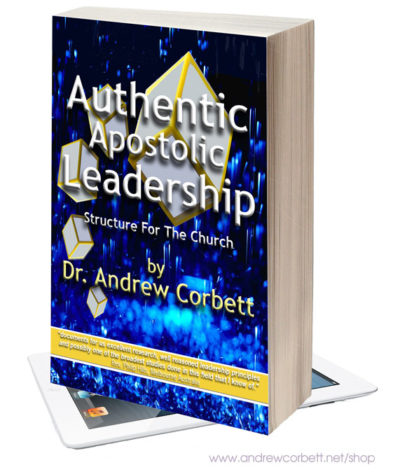home > articles > Eschatology > Could We Be In The ‘End Times’?
Wars, earthquakes, floods, and famines have long been considered the traits of what many believe to be the Biblical description of the “end times”. Added to this is what many understand to be the predictions of increased apostasy, the rise in persecution, the deterioration of society’s morals, and the increased compromise and lukewarmness of the Church. And surely, if these are the characteristics of what the Bible describes as the last days, we must be in the last days, right? But are we? And if we are, so what? And if we aren’t, then what? But are we in what the Bible describes as the ‘end times’?
¶ But understand this, that in the last days there will come times of difficulty.”
Second Timothy 3:1
WHAT ARE THE “END TIMES”?
 The expression “end times” is used by Christians to describe a brief period immediately preceding the return of Christ to earth. The expression, however, does not actually occur in the Bible. Rather, expressions such as “the last days”, “end of the age” are regarded as synonyms for “end times”. The Bible presents a picture of our world as being subject to God’s redemptive plan which climaxed in the coming to earth of the eternal Son of God as one of us and will culminate one day when He returns to judge the living and the dead (Rev. 20:12).
The expression “end times” is used by Christians to describe a brief period immediately preceding the return of Christ to earth. The expression, however, does not actually occur in the Bible. Rather, expressions such as “the last days”, “end of the age” are regarded as synonyms for “end times”. The Bible presents a picture of our world as being subject to God’s redemptive plan which climaxed in the coming to earth of the eternal Son of God as one of us and will culminate one day when He returns to judge the living and the dead (Rev. 20:12).
knowing this first of all, that scoffers will come in the last days with scoffing, following their own sinful desires.
Second Peter 3:3
SIGNS OF THE “END TIMES”
NATURAL DISASTERS
 The Bible describes the last days as having turbulent natural disasters such as earthquakes (Matt. 24:7). Some assume that this is a category header for floods, storms, cyclones, and droughts. Strange weather patterns are regarded as a sign of the end times by some.
The Bible describes the last days as having turbulent natural disasters such as earthquakes (Matt. 24:7). Some assume that this is a category header for floods, storms, cyclones, and droughts. Strange weather patterns are regarded as a sign of the end times by some.
SCOFFERS
They said to you, “In the last time there will be scoffers, following their own ungodly passions.”
Jude 18
Many end-times Bible teachers believe that the rise of scoffers – those who mock Christianity and Christian values is a sign of the end times. They then interpret the rise of “deconstructionism” (the term used by social engineers to describe the deconstructional of Christian values from a culture’s social norms) to be a sure sign that we are in the last days.
knowing this first of all, that scoffers will come in the last days with scoffing, following their own sinful desires.
Second Peter 3:3
Thus, the push for such non-life policy agendas such as abortion, euthanasia, same-sex-marriage, man-boy love, eugenics, gendercide, are regarded as more or less being inevitable because they are supposedly prophesied in the Bible as being a last days push against God’s laws.
APOSTASY
¶ Now the Spirit expressly says that in later times some will depart from the faith by devoting themselves to deceitful spirits and teachings of demons,
First Timothy 4:1
Apostasy is when believers forsake the faith. Many “end times” preachers interpret the New Testament as predicting that in the last days before the return of Christ that the Church will dwindle and decline. In some extreme cases, this understanding is used to justify a lack of evangelism or any attempt to grow the Church.
COULD WE BE IN THE END TIMES NOW?
Based on the above criteria it would seem so. But there are some serious problems with these assertions. The immediate problem is a hermeneutical. None of the Scriptures behind any of these assertions prophesy the end of the world, or the conditions of the last days before Christ returns. The expression “last days” in the New Testament referred to the last days of the Old Covenant. I have already stated that the expression “end times” does not occur in the Bible. When we understand that Christ made the Old Covenant obsolete when He established the New Covenant from the Cross, we can appreciate that the obsolete Old Covenant was in its last days when the New Testament was being written.
¶In speaking of a new covenant, he makes the first one obsolete. And what is becoming obsolete and growing old is ready to vanish away.
Hebrews 8:13
The Old Covenant involved a priesthood, sacrifices, temple ceremonies, and ritual laws. In Matthew 24 Jesus revealed what would happen leading up to the end of the Old Covenant. It involved the destruction of the Temple which necessarily meant the end of the sacrifices, the end of the priesthood, and obviously the end of temple rituals.
The next problem with these assertions that we must be in the end times before Christ returns) is an exegetical one. That is, how each of these verses are interpretted in light of their context. For example, the prophecy in First Timothy 4:1 regarding “some” falling away from the faith is more likely to pertain to Jewish Christians who lost confidence in Jesus as the Christ and returned to Judaism. Afterall, this is the very reason why the Epistle to the Hebrews was written!
And the most alarming problem with these assertions is the damage to the credibility of Christianity and our Gospel. I have written an article listing some of the end-times claims made throughout history which have been proven wrong each time. These faulty prophetic assertions undermine the credibility of the Gospel in the minds of people. Added to this damage is the apathy it creates in those who should be living salt and light in a society to the end that more people come to a saving knowledge of Christ.
Christ will one day return. But in the meantime we shouldn’t be preoccupied with whenthis might be since what we are commanded to do before He returns is so obvious. I speak more about this in my book The Most Embarrassing Verse In The Bible and discuss how we might best understand the Book of Revelation in my eBook The Most Embarrassing Book In The Bible.
Andrew Corbett
26th April 2013











































0 Comments